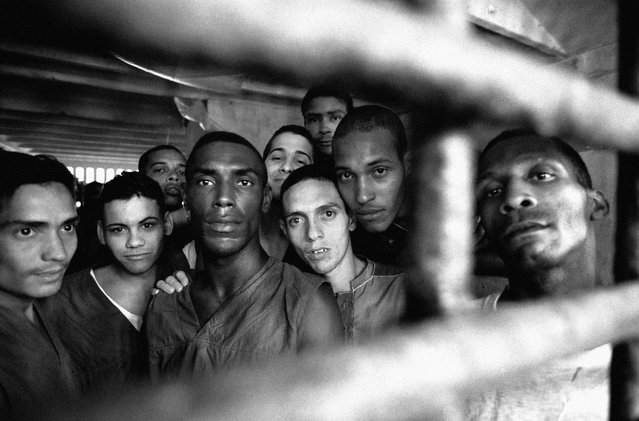A human rights group working in Cuba is raising the alarm on the Communist nation’s rampant imprisonment of political opponents and civilians who speak out against the government.
 Prisoners Defenders issued a report Friday naming eight new political prisoners, who were allegedly arrested on phony charges and jailed in an undisclosed location with dozens of other “political convicts for opposition to the regime.”
Prisoners Defenders issued a report Friday naming eight new political prisoners, who were allegedly arrested on phony charges and jailed in an undisclosed location with dozens of other “political convicts for opposition to the regime.”
“We recognize in (Cuban Prisoners Defenders), as of November 1, 2019, 127 political convicts by the opposition to the regime but, in addition, another 10,000 civilians not belonging to opposition organizations, 8,000 of them convicted and 2,000 condemned, both groups on conscience with sentences of 1 to 4 years,” according to the report.
Those so-called convicts are serving time “for charges referred to in the Criminal Code as ‘pre-criminals,’ that is, without any crime,” according to the group.
Essentially, opponents of Cuba’s Communist government who actually join organizations and actively work toward freedom and democracy are considered criminals of conscience and sentenced to decades or even life in prison.
But there’s also an estimated 10,000 citizens that are also facing shorter one- to four-year sentences for “behavior observed in manifest contradiction with the norms of socialist morality.” Folks who “disturb the order of the community” are “considered in dangerous state.”
Cuba’s criminal code also stipulates police issue warnings to people with “links or relationships with potentially dangerous persons,” according to Prisoners Defenders.
The law states “Security measures may be decreed to prevent the commission of crimes or on the occasion of their commission. In the first case they are called pre-criminal security measures, and in the second, post-criminal security measures.”
Those arrested for pre-crimes are then subjected to “reeducational measures,” according to the law.
“The reeducational measures are: a) internment (prison) … b) delivery to a work group (forced labor) … The reeducational measures are applied to antisocials,” according to the criminal code. “The term of these measures is at least one year and a maximum of four.”
Prisoners Defenders contends the laws “are infamous and violate the most basic principles of justice adopted by the entire International Community and explicitly prohibited in the Universal Declaration of Human Rights.
“The regime arbitrarily qualifies, isolates from the community and subsequently criminally condemns innocents by the thousands each year, through the use of its Criminal Code,” the organization reports.
Prisoners Defenders is working to highlight the issue and thousands of innocent Cubans in jail for thought crimes against the Communist government, with some success.
“Fifteen opponent of the list have already been named Prisoners of Conscience by Amnesty International, 6 of them in the last 2 months,” according to the report. “Four have received the support of the Inter-American Commission on Human Rights.”
More information about Cuban Prisoners Defenders, and its parent human rights organization, Prisoners Defenders International Network, is available at PrisonerDefenders.org.
Leave a Comment
COMMENTS POLICY: We have no tolerance for messages of violence, racism, vulgarity, obscenity or other such discourteous behavior. Thank you for contributing to a respectful and useful online dialogue.